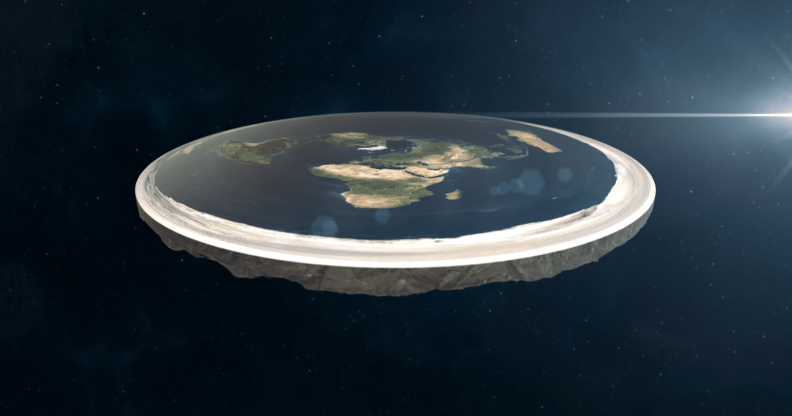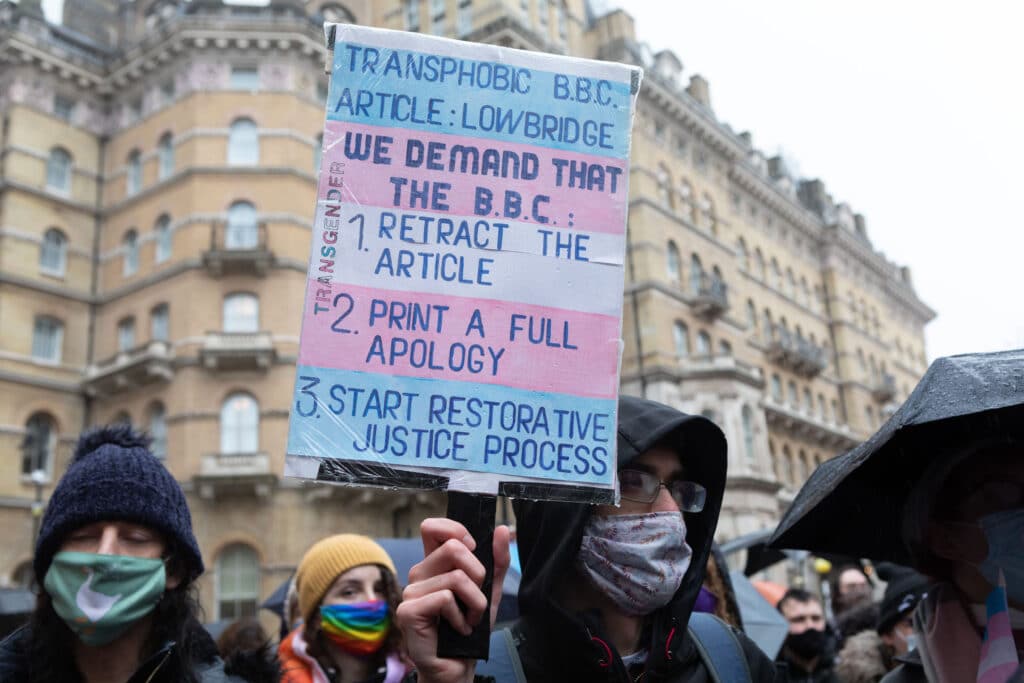BBC boss says flat-Earthers are welcome in the name of impartiality

Flat-earthers are welcome on the BBC. (Envato)
In a bizarre effort to showcase its stance on impartiality, a BBC director has said he would platform flat-Earthers if enough people believed them.
David Jordan, the BBC’s director of editorial policy and standards, addressed the House of Lords Tuesday (11 January) to discuss giving Ofcom more power to regulate public service broadcasters’ impartiality online.
Giving evidence to the Lords Communications and Digital Committee, Jordan said the corporation must “represent all points of view” even if its commitment to the “hard edge of impartiality” trumps identity or offence – even when it comes to trans rights.
Jordan told the Lords: “Whether or not some members of our staff like it is not the point. They leave their prejudices at the door.
“They need to be prepared to hear viewpoints they might personally disagree with. It’s our job to get those viewpoints proportionately viewed on the BBC.”
“Cancel culture”, Jordan said, has no place on the BBC airwaves.
“We are very committed to ensuring that viewpoints are heard from all different sorts of perspectives and we don’t subscribe to the ‘cancel culture’ that some groups would put forward,” he explained.
All viewpoints include those of flat-Earthers.
“Flat-Earthers are not going to get as much space as people who believe the Earth is round,” Jordan explained, “but very occasionally it might be appropriate to interview a flat-Earther.
“And if a lot of people believed in flat Earth we’d need to address it more.”
Jordan spoke just days after the latest round of protests against the BBC’s anti-trans reporting.
Trans Activism UK, a grassroots group that organised the demonstration, accused the BBC of “falsely clinging to impartiality as a shield for reporting that uncritically platforms bigotry”.
“And more generally […] the institution’s insistence that platforming those with anti-trans views is a neutral act of reporting rather than a deliberate choice of editorial direction and tone,” organisers wrote in a news release.
“We do not agree with this characterization of our output,” the BBC said in a statement to Openly.
“There are many articles on the BBC website about transgender people that reflect a range of views and perspectives. We do not condone or support discrimination in any form.”
The BBC has been heavily criticised for its handling of trans issues. It has, on numerous occasions, given a platform to the LGB Alliance, as well as other anti-trans voices, in the name of impartiality.
This has prompted intense criticism on the apparent treatment of trans rights as a debate requiring impartiality, rather than as a fundamental human rights. The BBC has also been accused of leaving trans people out of such conversations, flying in the face of its commitment to impartiality.
A flashpoint came in October with a BBC News article headlined “We’re being pressured into sex by some trans women” that relied on a self-selected survey of 80 people who support an anti-trans campaign group.
It was widely derided as transphobic, a charge the BBC has denied.
Defending the article in the face of a stunning backlash, the BBC said the piece was an example of its “strong commitment to impartiality” – despite not including a single interview with an opposing viewpoint.

A protestor holds a placard during the demonstration organised by Trans Activism UK. (Belinda Jiao/SOPA Images/LightRocket via Getty Images)
The BBC’s director of news, Fran Unsworth, reportedly told LGBT+ workers to “get used to hearing views you don’t like” in a November internal meeting with the BBC’s Pride network.
Meanwhile, LGBT+ staff are exiting the BBC in droves, with some claiming that anti-trans voices have the ear of senior managers.

